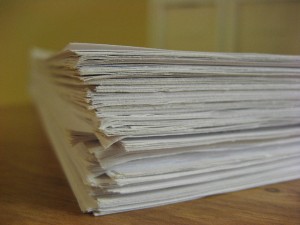 “You say that these students want to use technology, but I am giving an online test this week and they all say they’d rather do a regular test in class.” This is a statement that a teacher at my school said to me last week. In thinking about this statement, I realized that my colleague had implied two ideas:
“You say that these students want to use technology, but I am giving an online test this week and they all say they’d rather do a regular test in class.” This is a statement that a teacher at my school said to me last week. In thinking about this statement, I realized that my colleague had implied two ideas:
- If students want to use more technology in their learning, then no matter what type of technology it is, they should be engaged and positive about it.
- She has done her job by trying a new technology once, and because of her students’ reactions, she now has an excuse not to try it or other types of technology again.
In my response to her statement, I opened the discussion by asking for her observations and knowledge about how our high school students have generally been taught throughout their schooling. In my experience, students are engaged in regurgitation of material for standardized tests and written forms of assessment as the primary mechanisms for learning in school 90% of the time. They have been conditioned to participate in a system that values knowing exactly how to acquire marks through limited modes of learning and expression–namely reading, writing, and memorization. Our students have practiced this way of learning for many years.
This is why we cannot expect students to break out of their conditioned ways in the course of a single day. What my colleague could have done was determine what type of assessment was best for measuring her students’ learning in the most recent unit and, if an online test was the best way to measure it, then she should explain why to her students. I believe that understanding the process of learning and what actually takes place in it, is something that we do not examine enough with our students. This is a discussion that I am sure her students would appreciate and learn from.
Students need to know why we are approaching learning in a specific way so that they too understand the ‘why’ of a particular teaching or evaluation method. And if our teaching and learning methods are grounded in a solid understanding of what rich, deep, real-world learning is, then students will become engaged in the learning process, like my colleague wanted. Furthermore, instead of trying something only once, we need to practice creating participatory, challenging, and engaging learning environments over and over again, so that students can gradually build a deep understanding of what rich learning is. In doing so, we will be modelling for our students how perseverance over time leads to dynamic, personal, and engaging learning processes. After all, we know that continuous practice and reflection creates habits, and habits help us develop new ways of thinking.
So my colleague and I concluded that her efforts to create a more engaging form of assessment was not a failure, but an opportunity to think about what it takes to design such an experience, and a chance to include her students in a dialogue about the specific elements of engaging assessment. It is up to us to model for our students, how to learn in deeper, richer, and more complex ways. We cannot expect them to know everything about every type of technology, or be engaged right away when using any technology tool. Using educational technology means being purposeful about it, and understanding why we are using a specific tool in a specific context. We need to learn alongside our students to build our understanding of how educational technology is connected to real-world contexts, and to our students’ personal passions, strengths, and futures.
For some reading on active learning with technology to change teaching practice, check out this article, Active Learning and Technology: Designing Change for Faculty, Students, and Institutions (2007), by Anne H. Moore, Shelli B. Fowler, and C. Edward Watson.
Have you thought of ed tech in similar ways to me or my colleague? Do you have some ideas as to how we can expand our understanding of the processes of learning with students?
